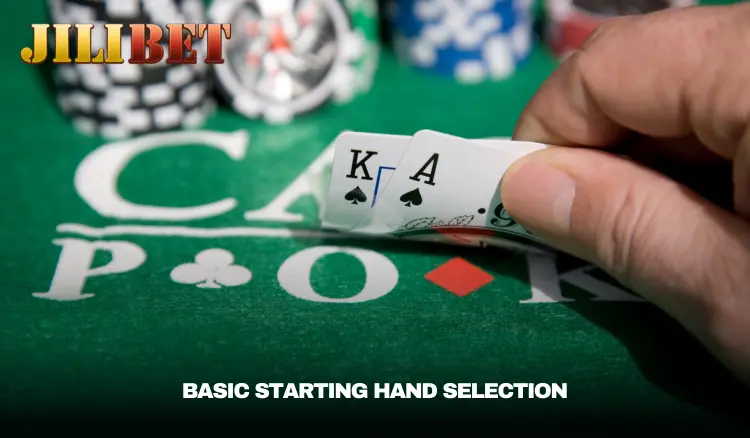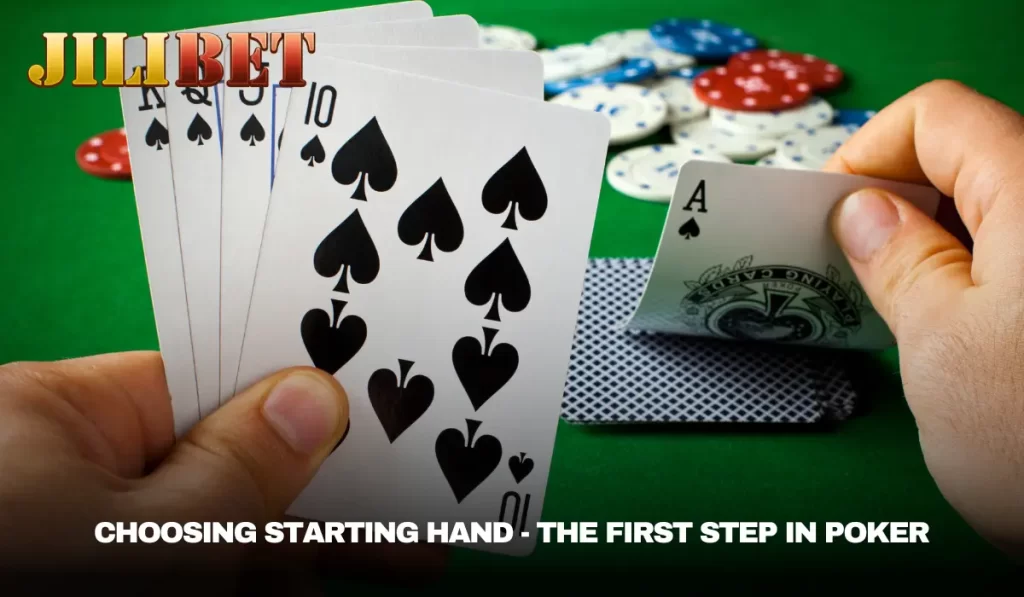Of all the most critical and one of the first skills you have to learn when trying to become a poker player, choosing your starting hands, that is, the two cards that you get dealt at the beginning of the poker hand, is very important. Choosing your starting hands carefully can make all the difference between success and failure in any game.
In this guide, JILIBET will share some essential tips for beginners on how to choose the best starting hands.
Understanding the Card Value System
To begin, it’s crucial to understand the value of each card in a deck (Ace, King, Queen, Jack, 10, and numbers 2 through 9).
- Cards are ranked in descending order: Ace is the highest, followed by King, Queen, Jack, and so forth.
Basic Starting Hand Selection

When starting out, it’s best to stick with strong starting hands. These include pairs of high-ranking cards like Aces, Kings, Queens, and Jacks.
- Suited cards (especially Ace and King of the same suit) are also strong as they have a better chance of forming a flush.
The Importance of Position in the Game
Your position at the table plays a significant role. Players in late positions (like the dealer button) have an advantage in selecting starting hands because they have more information about how their opponents are playing.
=> Are you looking for a reputable and top-quality casino? Try our partners: PH777 CASINO.
Starting Hands Charts and Guides
There are various starting hands charts and guides available online. These can help you identify which starting hands to play and which to fold.
- Keep in mind that these charts are just general guidelines and are not 100% accurate. Understanding your opponents and the specific context of the hand is equally important.
Terms:
- Playable in early positions if the game is loose/passive: Can be played from early positions if the game is loose or passive.
- Playable in middle positions if the game is loose/passive: Can be played from middle positions under loose/passive conditions.
- Playable in late positions if the game is loose/passive: Can be played from late positions in a loose/passive game.
Bankroll Management

Always consider how much money you are willing to bet before deciding to play certain starting hands. This helps you avoid losing too much money if your starting hand turns out to be weak.
Reading Your Opponents
Reading your opponents is a crucial skill when choosing to start hands. Pay attention to how they play and how they bet. If you notice that a particular opponent is cautious and only plays strong hands, be more careful when facing them.
Playing According to the Situation
There is no hard and fast rule for selecting starting hands. Always consider the specific situation at the table. For instance, if several players have already bet or raised before you, you may need to fold stronger hands to avoid risk.
Patience and Mental Control
Poker is a game of patience. Sometimes, you might need to wait a long time for good starting hands. Be patient, and never let impatience get the better of you.
Explore and Learn Various Poker Strategies
Poker is a continuous learning process. Watch professional matches and learn how experienced players choose their starting hands.
=> Read more: Understanding Pocket Aces Win Percentage in Texas Hold’em.
Conclusion
Keep in mind that poker is both a strategic and instinctive game. Choosing your starting hands is only a portion of the whole game. A good poker player should also learn to develop their intuition by reading their opponent, working out strategies on bets, maintaining self-discipline, and setting up their poker journey with these tips for success.
Good luck, and remember, practice is the most important factor in improving your skills.
=> Read more: Understanding Pocket Aces Win Percentage in Texas Hold’em.

Launched in 2017, JILIBET began its odyssey, serving the Philippines entertainment and gambling. JULIET is a Filipino-owned corporation – Ms.Carmen Dela Rosa, the CEO of Jilibet Casino, is a visionary leader who has been instrumental in driving the brand’s growth since its founding.

